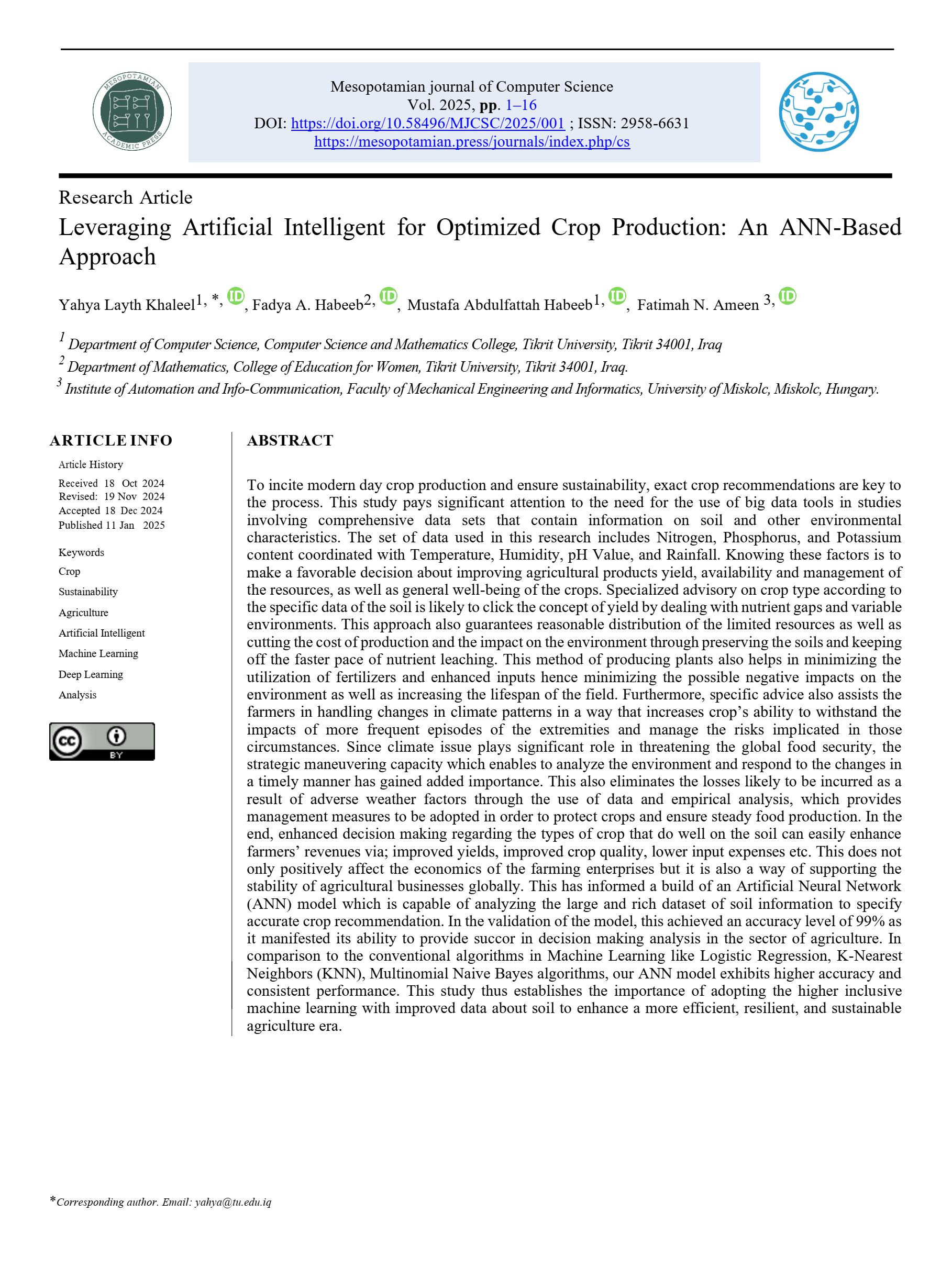Leveraging Artificial Intelligent for Optimized Crop Production: An ANN-Based Approach
Main Article Content
Abstract
To incite modern day crop production and ensure sustainability, exact crop recommendations are key to the process. This study pays significant attention to the need for the use of big data tools in studies involving comprehensive data sets that contain information on soil and other environmental characteristics. The set of data used in this research includes Nitrogen, Phosphorus, and Potassium content coordinated with Temperature, Humidity, pH Value, and Rainfall. Knowing these factors is to make a favorable decision about improving agricultural products yield, availability and management of the resources, as well as general well-being of the crops. Specialized advisory on crop type according to the specific data of the soil is likely to click the concept of yield by dealing with nutrient gaps and variable environments. This approach also guarantees reasonable distribution of the limited resources as well as cutting the cost of production and the impact on the environment through preserving the soils and keeping off the faster pace of nutrient leaching. This method of producing plants also helps in minimizing the utilization of fertilizers and enhanced inputs hence minimizing the possible negative impacts on the environment as well as increasing the lifespan of the field. Furthermore, specific advice also assists the farmers in handling changes in climate patterns in a way that increases crop’s ability to withstand the impacts of more frequent episodes of the extremities and manage the risks implicated in those circumstances. Since climate issue plays significant role in threatening the global food security, the strategic maneuvering capacity which enables to analyze the environment and respond to the changes in a timely manner has gained added importance. This also eliminates the losses likely to be incurred as a result of adverse weather factors through the use of data and empirical analysis, which provides management measures to be adopted in order to protect crops and ensure steady food production. In the end, enhanced decision making regarding the types of crop that do well on the soil can easily enhance farmers’ revenues via; improved yields, improved crop quality, lower input expenses etc. This does not only positively affect the economics of the farming enterprises but it is also a way of supporting the stability of agricultural businesses globally. This has informed a build of an Artificial Neural Network (ANN) model which is capable of analyzing the large and rich dataset of soil information to specify accurate crop recommendation. In the validation of the model, this achieved an accuracy level of 99% as it manifested its ability to provide succor in decision making analysis in the sector of agriculture. In comparison to the conventional algorithms in Machine Learning like Logistic Regression, K-Nearest Neighbors (KNN), Multinomial Naive Bayes algorithms, our ANN model exhibits higher accuracy and consistent performance. This study thus establishes the importance of adopting the higher inclusive machine learning with improved data about soil to enhance a more efficient, resilient, and sustainable agriculture era.
Article Details
Issue
Section

This work is licensed under a Creative Commons Attribution 4.0 International License.
